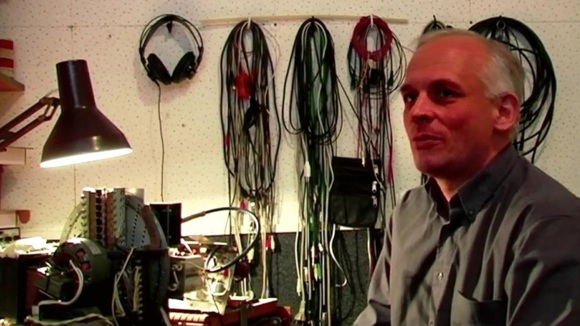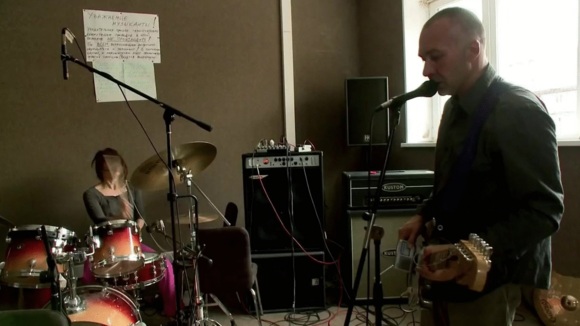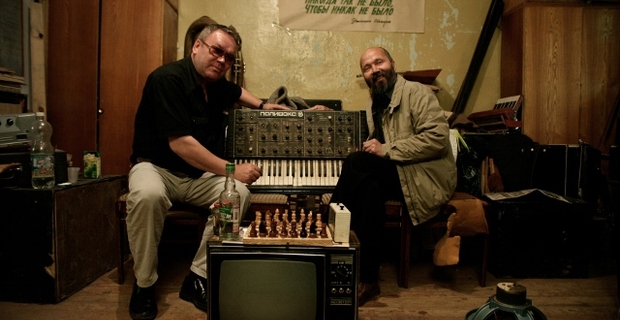Directors: Elena Tikhonova and Dominik Spritzendorfer
Watch Electro Moscow on FilmDoo
Under the backdrop of Soviet Communism during the late 1970s and early 1980s, this documentary studies the ideology of electricity and its connection with music. With historical footage and modern interviews, the film looks at the development of electronic music in Russia from Léon Theremin to the present day.
The Communist ideology of ‘electrification’ was part of the Soviet focus on scientific and technical progress. The continued development of electricity was regarded as the nation’s guaranteed path to supremacy. However, only inventions that advanced this goal were viewed as important. Hence, electronic musical instruments were seen as unnecessary by the state. For some people, however, the connection of electricity to music was fascinating and they experimented with it by any means possible.

Seeing as electronic instruments were extremely hard to get hold of, these interested people, many of whom were engineers or inventors themselves, used illegal channels to explore the field. By stealing or purchasing military machines from state workshops, they acquired materials for the construction of electronic instruments. One man describes how this business had actually become normalised and was generally perceived as part of technological advancement. The KGB even stole tech from their headquarters to sell to these underground inventors.
Under Communist ideology, Western rock music was censored, and some electric “˜cosmic sounds’ were also banned for ideological reasons. Hence, following the black-market selling of technology and the construction of electronic instruments, underground electro performances emerged. Alexei Borisov’s band Nochnoy Prospect are an example. Using ‘homemade’ synthesisers, the band created experimental electro music.

These synthesisers appear to have great symbolic significance to their owners. Many of the interviewees discuss the inconsistent quality of Soviet-era synthesisers, but exude a ‘come what may’-style attitude. As Richards Norvila (aka. Benzo) argues, they are imperfect instruments for imperfect musicians. Alexei Borisov advocates the appeal of musical ‘chaos’. Like another interviewee that makes music using modern Chinese toys, these people are all interested in making music in whatever way possible.
The clear passion of the film’s interviewees contributes greatly to the film’s value. For audiences that don’t necessarily share the same interest of Soviet-era synthesisers, the historical context and the inspiration of the people involved certainly make it engaging. While similar audiences may consider discussions about the specifics of different machines a turn off, they take place around an inspiring context. A bizarre but engrossing existential revelation comes at the very end of the film in a replay of Léon Theremin’s last ever interview. He drops his bombshell and is then cut off, like an intervention from a mysterious external source.
Watch Electro Moscow on FilmDoo now!
FilmDoo also recommends:








